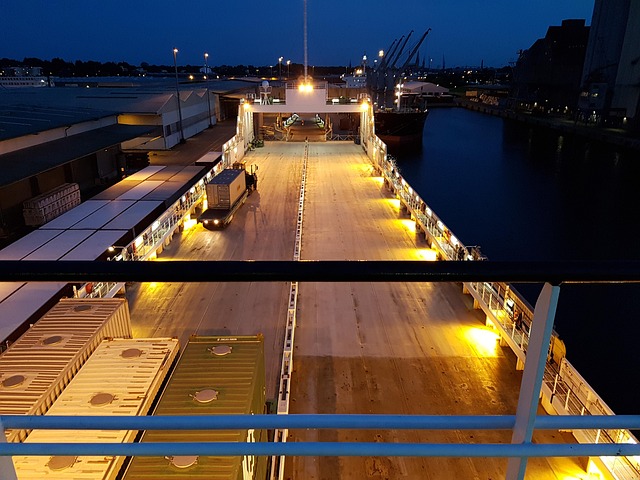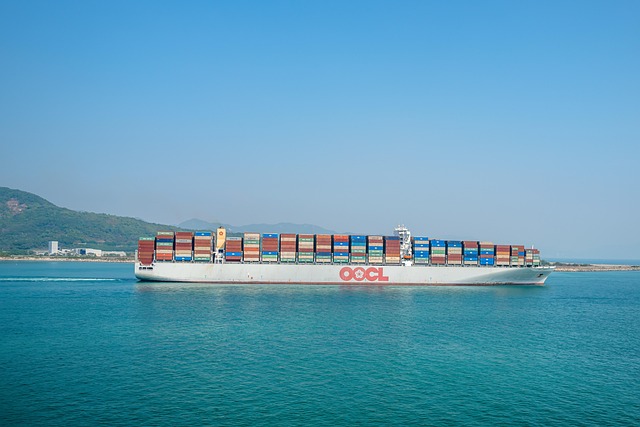Lightweight Insulated Boxes: Revolutionizing Efficient Shipping & Costs
Insulated shipping boxes optimize supply chains by maintaining temperature-controlled environments f…….

Insulated shipping boxes optimize supply chains by maintaining temperature-controlled environments for diverse goods, minimizing packaging volume, and maximizing protection while reducing costs and carbon emissions in logistics. Lightweight materials like polyinsulated foams, plastic, or composites ensure minimal weight with superior insulation quality, catering to specific industries such as food, medical, and pharmaceuticals. Customizable sizes, disposable or reusable options, and widespread availability make these boxes versatile for various business needs, prioritizing both quality and sustainability.
Reducing overall shipping weight is a strategic move to optimize logistics and cut costs. In this article, we explore an innovative solution: lightweight insulated shipping boxes. We’ll delve into their materials, design innovations, and how they enhance shipping efficiency. From understanding the impact of shipping weight on your bottom line to best practices for implementation, discover why these boxes are revolutionizing the industry. Embrace a smarter approach with lightweight insulated shipping solutions.
- Understanding the Impact of Shipping Weight on Logistics and Costs
- Introduction to Lightweight Insulated Shipping Boxes: Materials and Design
- Benefits of Using Lightweight Insulated Boxes for Efficient Shipping
- Best Practices for Implementing Lightweight Insulated Shipping Solutions
Understanding the Impact of Shipping Weight on Logistics and Costs

In the world of logistics, every kilogram counts. Shipping weight directly impacts delivery costs, fuel efficiency, and even carbon emissions. Understanding this dynamic is crucial for businesses aiming to optimize their supply chain. Even small reductions in overall shipping weight can lead to significant savings and environmental benefits.
Insulated shipping boxes play a pivotal role in this equation. Their specialized design, utilizing materials like foam insulation, helps maintain temperature-controlled environments for various goods, from perishable food items to delicate medical supplies. By carefully selecting the right insulated shipping box – whether for wholesale, rental, or disposable needs – businesses can minimize packaging volume while maximizing protection, ultimately reducing overall shipping weight and associated costs across the board.
Introduction to Lightweight Insulated Shipping Boxes: Materials and Design

Lightweight insulated shipping boxes are revolutionizing the logistics industry by offering an innovative solution for efficient and safe product transportation. These cutting-edge containers combine advanced materials with meticulous design to ensure that goods remain at optimal conditions during transit, regardless of distance or climate. Typically crafted from durable yet lightweight polyinsulated foams, plastic, or composite materials, these shipping boxes are designed to minimize overall weight without compromising insulation quality.
Their structure often incorporates multiple layers of protective material to create a thermal barrier, keeping contents cool or warm as required. Several specialized varieties cater to specific needs: insulated food and medical shipping boxes maintain perishable items at the right temperature, while cooler and gel pack shipping boxes are ideal for colder climates. Customizable features like insert dividers, liners, bags, and foam packs further enhance their versatility, making them suitable for a wide range of products from electronics to pharmaceuticals.
Benefits of Using Lightweight Insulated Boxes for Efficient Shipping

Using lightweight insulated boxes for shipping offers numerous advantages, revolutionizing the logistics industry. One of the key benefits is reduced overall weight, which directly translates to significant cost savings on transportation fees, especially for bulky but light-weight items. These innovative boxes are designed with advanced insulation materials that maintain ideal temperatures, ensuring the safe and intact delivery of temperature-sensitive goods. This is particularly crucial in industries like food, medical, and pharmaceutical, where maintaining quality and integrity during transit is paramount.
Furthermore, insulated shipping boxes come in various sizes and customizable options, allowing businesses to adapt them to different product needs without compromising on insulation efficiency. The market also offers both disposable and reusable varieties, catering to diverse sustainability requirements. With an array of suppliers and manufacturers available, acquiring these boxes has become more accessible than ever, with options like wholesale purchases or even rentals for one-time use, providing flexibility to businesses of all scales.
Best Practices for Implementing Lightweight Insulated Shipping Solutions

Implementing lightweight insulated shipping solutions requires a strategic approach to maximize their benefits and ensure effective temperature control during transit. Begin by assessing your specific shipping needs, including the types of items being transported (e.g., perishable food, medical supplies, or fragile goods) and the required temperature range. This will guide your choice between various insulated box materials, designs, and insulation types available in the market.
Consider collaborating with reputable insulated shipping box manufacturers or suppliers who offer customizable options tailored to your business’s unique requirements. Opt for high-quality boxes that are durable yet lightweight, ensuring they meet industry standards and regulations. Efficient packaging design, including the use of insulated shipping box inserts, liners, or bags, can further enhance temperature retention and protect contents from damage. Regularly review and update your practices, staying informed about innovations in insulated shipping technology to stay ahead in maintaining product integrity and reducing overall shipping weight.
Lightweight insulated shipping boxes are a game-changer in the logistics industry. By significantly reducing overall shipping weight, these innovative solutions offer numerous benefits, including lower transportation costs and improved environmental sustainability. Implementing best practices for their use can streamline operations, enhance customer satisfaction, and contribute to a more efficient and eco-friendly supply chain. In today’s competitive market, adopting lightweight insulated boxes is not just an option—it’s a strategic necessity.







